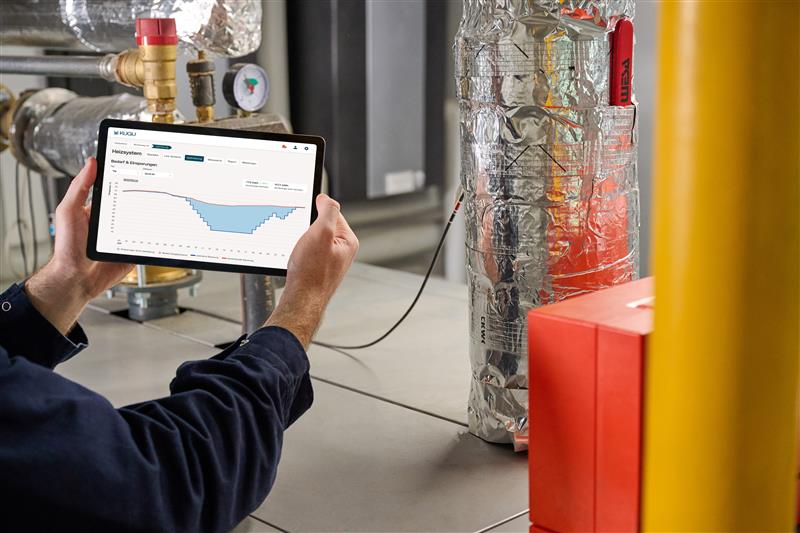Conquering tomorrow's real estate market with ESG

ESG criteria regulations, challenges and opportunities for the real estate sector
Hardly any other topic is currently being hotly debated in the real estate sector than ESG criteria and their effects. Real estate companies are required to act and comply with legal requirements. However, the speed with which the new regulations were introduced has led to an information gap in many companies. Employees feel inadequately informed and therefore uncertain when dealing with the requirements. Last but not least, the issue of ESG must be viewed differently depending on the sector of industry and should therefore be assessed individually.
KUGU took a closer look at the topic for the real estate industry and compiled answers to the most important questions. This shows that the topic of ESG also represents an opportunity to redesign the market. The required digitization of real estate management automates and simplifies work processes, creates transparency and, with the right measures, can lead to greater energy efficiency in buildings. Anyone who sees ESG as an opportunity for change rather than as a necessary evil now has the opportunity to conquer tomorrow's market with new business models.
What does the abbreviation ESG stand for and what requirements do the three areas place on the real estate sector?
With the EU Action Plan on Sustainable Finance It was established that companies must disclose their sustainability record in the areas of environment, social and governance. Annual reporting based on defined criteria should ensure greater transparency and provide important clues as to a company's creditworthiness. Financial market participants with more than 500 employees are currently required to report. The expansion of mandatory reporting to include smaller market participants is planned from 2026.
The area Environment focuses on climate-friendly construction and management of buildings. For the purpose of climate and environmental protection, buildings should be energy-efficient and future-proof. In practice, this is being implemented through decarbonization, higher shares of green space, green rental contracts, heat-efficient systems or even the use of renewable energy.
In the area Social Working conditions, social commitment and health protection play a key role. It highlights both internal aspects of the company, such as work-life balance, diversity and inclusion in the team, as well as external aspects of society. Real estate companies have a high level of responsibility for society in particular. Through social housing, retirement homes, student housing and barrier-free buildings, they can ensure equal rights and promote community development.
The division aims at sustainable management of the company Governance off. All control and management processes as well as corporate values should be made sustainable. The introduction of sustainability and value management is important in this context and helps to meet the requirements.
How do the Green Deal and the EU taxonomy relate to ESG criteria?
The so-called Green Deal contains the climate goals set by the EU Commission for the EU. This includes reducing greenhouse gases by 60% (from 1990 to 2030) and completely abolishing net greenhouse gas emissions by 2050. Europe should become the first climate-neutral continent. The fact that the real estate sector is taking on a responsible task is proven by the 36% of greenhouse gases that the building sector alone currently accounts for. Within the Green Deal, the EU taxonomy is an instrument for achieving precisely these climate goals.
Die EU taxonomy divides economic activities and products into different levels of sustainability in order to give companies and society a direction as to what can be regarded as “sustainable.” The main goal is to establish a Europe-wide, uniform classification system for sustainable economic activities. For the building stock, for example, the taxonomy states that buildings built before 31.12.2020 are only sustainable if they meet the energy efficiency requirements in accordance with Energy Performance Certificates A correspond to or are among the 15% of the most energy-efficient buildings in the national or regional building stock.
What challenges do real estate companies face when it comes to meeting ESG requirements?
From January 2023, the form of ESG reporting will be specified. Companies are required to disclose the content, methodology and presentation of ESG criteria in accordance with very detailed rules. The biggest challenge is data collection, which presents companies with technological, financial and technical difficulties. Many companies simply do not yet have systems for scalable data management or their existing IT systems are not interoperable with metering technology. As a result, the energy data relevant for ESG reporting can only be laboriously extracted from suppliers' invoices and transferred manually to external tools or Excel spreadsheets. In addition, there is a lack of IT service providers and technical expertise, automated processes for error messages and reporting, and easily accessible software tools that enable collaborative work.
It turns out that successful ESG management only works with digitization. In addition to automating and optimizing existing processes, ESG regulations require the digitization of completely new work processes. Since this doesn't happen overnight, agile working methods and good project management are important so that existing and new processes are interconnected across systems.
Outlook — How are ESG criteria changing the real estate sector?
When it comes to sustainability management and digitization, the real estate sector still has a lot of catching up to do compared to the rest of the industry. As a result, the industry must and will change significantly over the next few years. The topic of holism is finding its way into the industry. Real estate is no longer planned and developed monolithically, but in close cooperation with authorities, urban and environmental planners. In the future, ESG-compliant construction projects in particular will generate high returns and remain competitive.
How exactly do I have to get involved as a real estate company now?
The key word is an energy-efficient and future-proof building stock. Where this has not happened yet, the first step is to install the hardware that is essential for digital processes. Once the basic requirements have been met, tools are then required to collect and manage the data.
Die digital energy data platform from KUGU Home is a tool that makes energy data transparent and evaluates energy data in real time using IoT technology and artificial intelligence: From heating bill and system control to CO2 monitoring and technical plant management. KUGU helps real estate companies save energy, significantly improve their CO2 balance and make buildings ESG-compliant and future-proof.
With regard to sustainability and ESG criteria, the KUGU software constantly monitors the CO2 load of the building using live data on gas, district heating and oil consumption and immediately identifies CO2 optimization potential of the plants. It therefore provides the perfect data basis for ESG reporting in compliance with compliance regulations.
Do you have any questions about ESG? Our KUGU expert is happy to help you:
Christopher von Gumppenberg
Founder & CEO of KUGU Home GmbH







